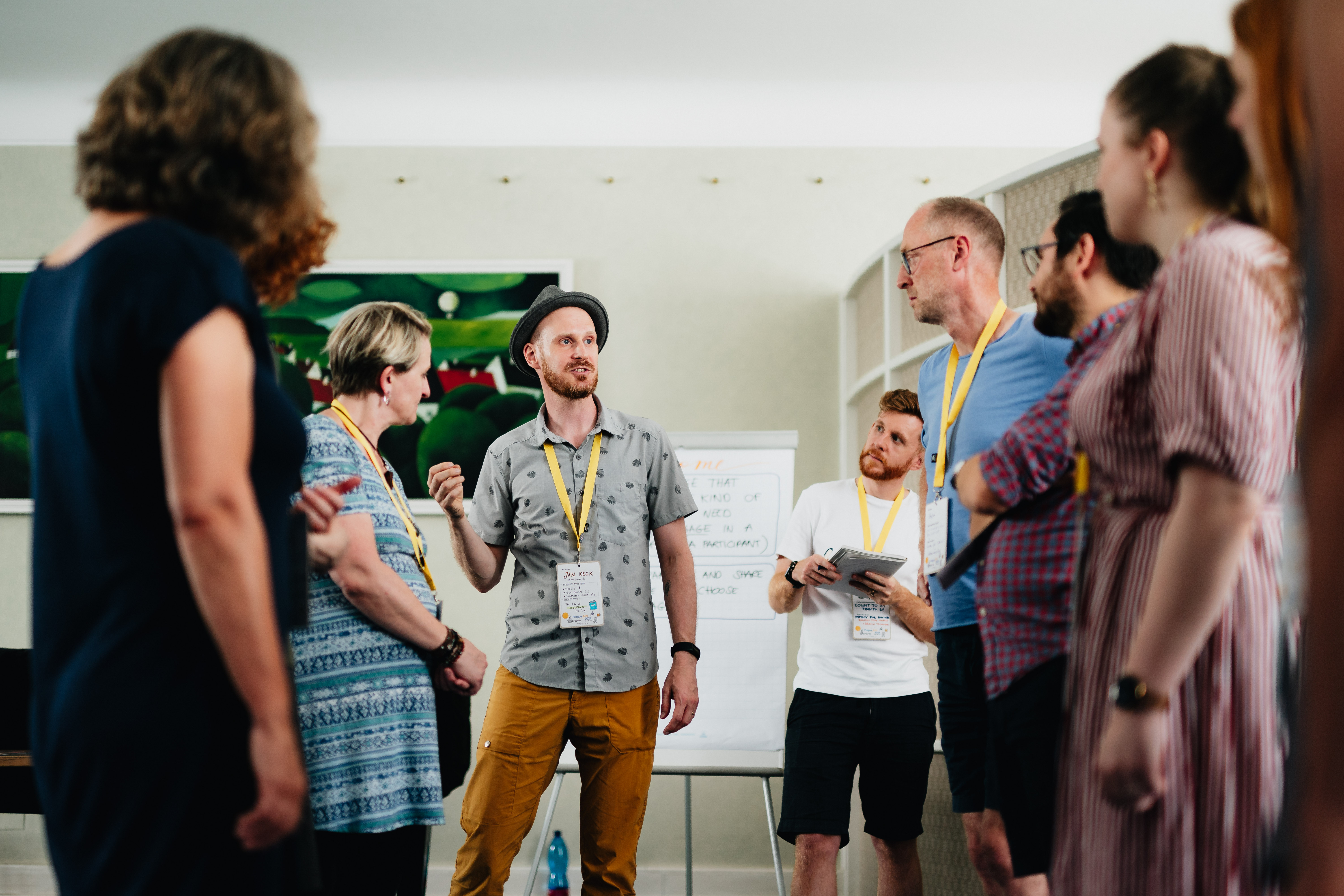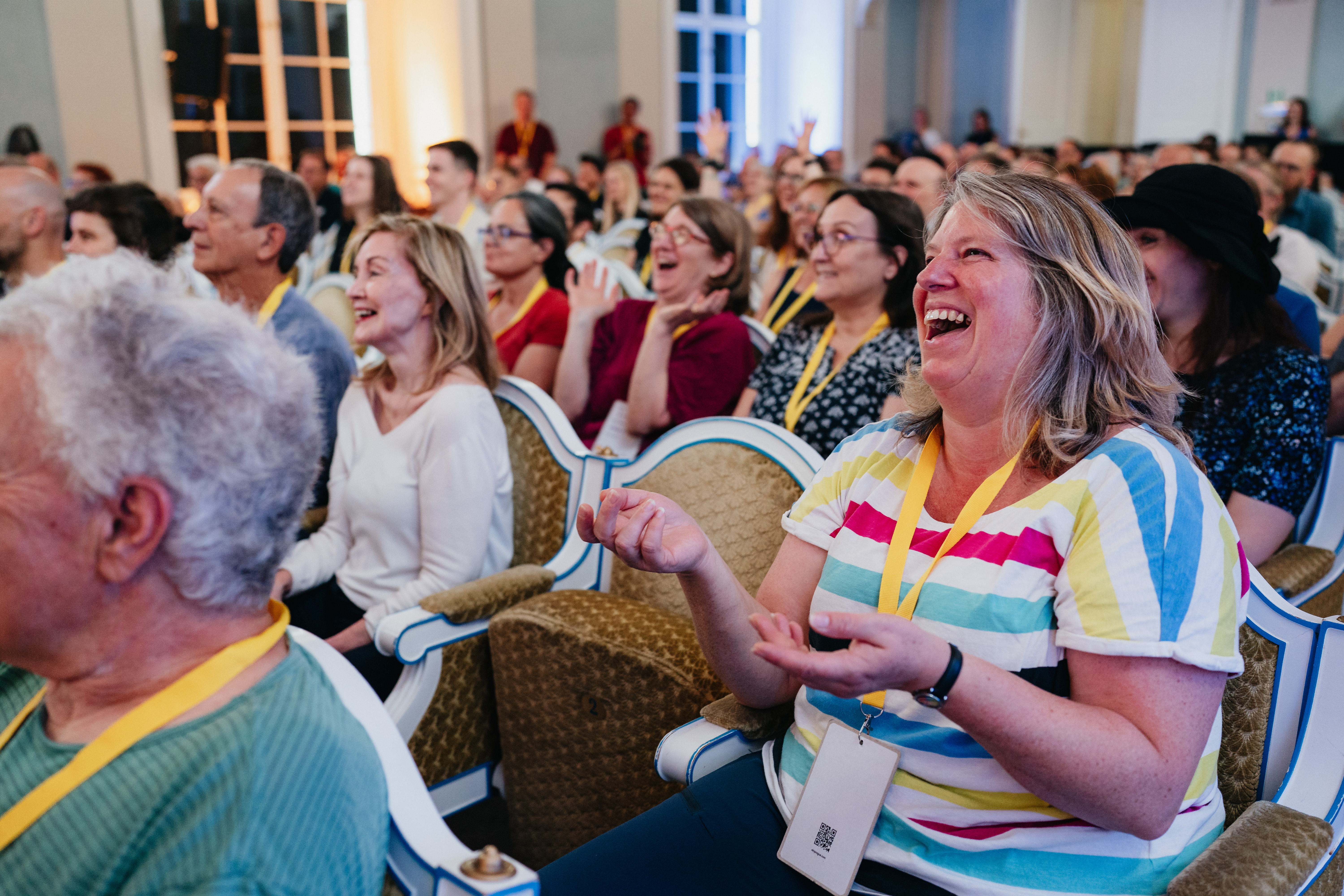What is Applied Improvisation?Definition of Applied Improvisation:Applied Improvisation draws lessons from the arts (e.g. comedy, jazz and theatre) and utilizes them for non-theatrical or non-performance applications. In 2014, AIN (Applied Improvisation Network) set out to understand the functional definition, principles and practices of applied improvisation.
Barbara Tint and Adam Froerer surveyed experts in the field and uncovered the following shared definition of applied improvisation: The use of principles, tools, practices, skills and mindsets of improvisational theater in non-theatrical settings, that may result in personal development, team building, creativity, innovation, and/or meaning.

Benefits of Applied Improvisation: Collaboration, Confidence & CreationApplied Improvisation assumes creativity happens collaboratively by using the principle of short turn taking between individuals in the group. In an atmosphere of positive purpose, everyone is encouraged to contribute. Fear, suspicion and anxiety are replaced with focus, creativity and sense of collaboration. This approach allows individuals, groups and organizations to release their creative potential and overtime increase their confidence.
Elements of Applied Improvisation:
Read more about the study conducted in 2014.
Collaboration, Confidence & CreationPractitioners of applied improvisation facilitate workshops, for individuals or organizations, introducing them to these principles, tools etc. via solo, paired or group exercises, activities and games. Participants of applied improvisation workshops are able to integrate these lessons and tools into their daily lives, enhancing personal development, team building, creativity, innovation and wellbeing and many other applications. Many exercises, activities and games use in applied improvisation are designed to encourage risk taking, playfulness and to be in the moment. Consequently participants will find that they are having fun whilst also developing or challenging their existing mind-set.
(Last Updated: Monday, September 8th, 2025. Photos featured on webpage are from the 2024 AIN Global Conference.) |


